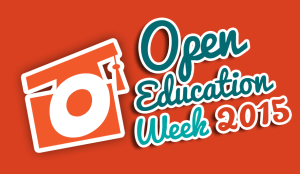 Open Education is a movement, a set of practices, a collection of resources and a range of tools. What brings them together is the aim of sharing knowledge, and technology is making that possible with an ease and on a scale previously unimaginable.
Open Education is a movement, a set of practices, a collection of resources and a range of tools. What brings them together is the aim of sharing knowledge, and technology is making that possible with an ease and on a scale previously unimaginable.
To get a better idea of what Open Education can be, we asked some colleagues what it means to them.
Openness influences the way that Dr Lucy Robinson (History) behaves as an academic:
‘Open education is about more than free access alone, it’s about being open to new ways of working with colleagues, with our students and with our communities.’ Lucy Robinson
Lucy is currently working on a TEL innovation project that will use free resources and tools to create learning resources (see her blog post about DIY Digital: Doing Punk Online) and worked with the Library and the Mass Observation Archive to create Observing the 80s.
Jane Harvell (Library) explains how the ‘Observing the 80s’ project developed understanding of Open Education at Sussex and allowed us to share valuable learning materials:
‘
It has been hugely valuable to work with our Mass Observation Archive material to develop Open Educational Resources as part of the Jisc-funded ‘Observing the 80s’ project. Carefully applying an appropriate Creative Commons Licence, digitising, as well as depositing the material in a number of repositories such as JORUM, has released this popular material for free unfettered access with permissions to retain, reuse, revise, remix to much wider audiences. Importantly the process also enabled staff involved to develop a deeper understanding of the value and application of Open Education.’ Jane Harvell
Learning together in the open
Sharing knowledge openly does not have to be about big projects and institutional holdings. A lot of learning happens informally online through Personal Learning Networks (PLNs) and this aspect of Open Education is important to Sue Beckingham (@suebecks on Twitter) from Sheffield Hallam University who researches the use of social media in higher education.
‘
Open Education is a rich treasure chest of opportunities which enable shared learning; cooperative and collaborative learning; informal, formal and social learning. It facilitates a collective repository of learning materials; builds communities of practice we can learn with and from; and provides a transparent view of what works and why through communal feedback and peer evaluation.’ Sue Beckingham
Last year, Open Education Week at Sussex wrapped up with an open webinar featuring two distinguished guest speakers Sheila MacNeill and Catherine Cronin.
This year we are fortunate to have Sheila speaking in person as part of the TEL Reshaping Teaching with Technology seminar series on Tuesday 10th March (there may still be a few places available – email tel@sussex.ac.uk to check).
Sheila’s presentation will focus on how OERs and open platforms enabled her team to organise an open online course to run alongside the Commonwealth Games in Glasgow, but that was just one manifestation of her ongoing commitment to openness in education:
‘Being open, and sharing is fundamentally what education is all about, it’s my modus operandi….Whilst I believe there is a place for national and international initiatives, declarations, institutional policies that define open education, for me open education is very personal.’ Sheila MacNeill
Last year, Catherine Cronin spoke in the Sussex OEW webinar about ‘networked educators’ and ‘networked students’ and later in the year wowed the Association for Learning Technology conference with her keynote ‘Navigating the Marvellous: Openness in Education’. Her understanding of Open Education comes from experience, practice and research:
‘
From my perspective as an open learner, educator, and researcher, openness means many things: using open resources, creating and sharing my work (artefacts, but also my thinking and reflections) and supporting students in doing the same. Openness is a license, of course, but not just a license. Openness, for me, is about a spirit of openness, a way of being which invites sharing, feedback, new ideas, and connection with others — but also an ethos of mutuality and trust. As Jenny Mackness beautifully describes it: “The rewards of open practice come in reciprocity, alternative perspectives, and opportunities for dialogue”.’ Catherine Cronin
How can I get involved with Open Education?
You may already be involved and not thought of it as ‘open education’. Here are some ways that have been identified in this post.
- be open to new ways of working with colleagues and students;
- use Open Educational Resources in your teaching (There is a workshop on Wednesday 11th March to help you do this. Details and booking via Sussex Direct);
- develop a Personal / Professional Learning network using social media;
- get involved in open online learning events;
- use open tools and platforms (see the TEL A-Z of apps for some ideas);
- apply Creative Commons licences to some of your own work so that others can reuse it;
- support students to do all of the above.
Your School learning technologist will be happy to help you explore any of these ideas. Get in touch with Nick Botfield for support if you are in the Sciences, Sally Burr for Business, Management and Economics, Anne Hole for Arts and Humanities, and Pete Sparkes for Global Studies and Law.




[…] Read the full story by University of Sussex Technology Enhanced Learning Blog […]